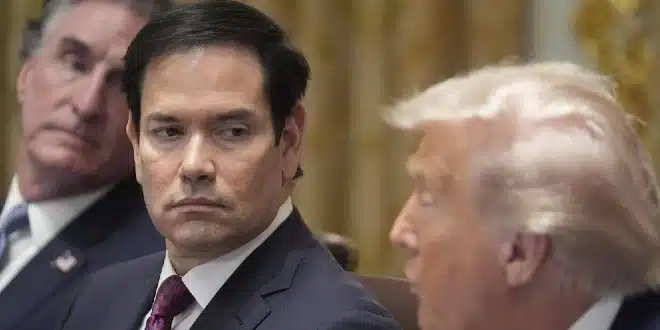The Trump administration announced on Friday, August 29, that it will not issue visas to senior Palestinian officials planning to travel to New York for next month’s United Nations General Assembly (UNGA). According to the State Department, visas that had already been granted will also be revoked, marking one of the most significant diplomatic restrictions imposed on the Palestinian Authority (PA) in recent years.
This move comes at a sensitive moment, with several European and Western countries preparing to formally recognize Palestine as a state. The UN meeting is expected to feature an intense debate on the issue, pitting the United States and Israel against much of the international community.
Could Abbas Be Barred from Attending?
Uncertainty remains over whether the decision will extend to Palestinian President Mahmoud Abbas. Blocking his attendance would be extraordinary, as the United States is bound under its Host Country Agreement with the UN to allow delegations to participate in General Assembly proceedings in New York. Such an action would set a precedent not seen since the Cold War era.
Palestinian Response
The Palestinian Presidency said it “deeply regrets” the US decision, denouncing it as a violation of international law and the UN Headquarters Agreement. Officials called on Washington to reverse its stance, stressing that the Palestinian leadership had already condemned the October 7 attack in a letter from Abbas to French President Emmanuel Macron—countering claims that Ramallah had failed to denounce violence.
Palestinian officials described the decision as politically motivated, accusing the US of trying to silence their voice at a time when global momentum for Palestinian recognition is growing.
Washington’s Justification
The US State Department defended its move by citing what it described as the PA’s “failure to consistently condemn terrorism,” continued incitement in Palestinian schools, and persistent lobbying for international recognition outside the peace process.
Officials also pointed to Palestinian legal initiatives against Israel, including efforts to bring Prime Minister Benjamin Netanyahu before the International Criminal Court (ICC).
In its statement, the State Department emphasized that the Palestinian Mission to the UN would still receive necessary waivers under the Host Country Agreement. It added that the US remained “open to re-engagement” if the PA demonstrated willingness to “return to a constructive path of compromise and peaceful coexistence with Israel.”
Historical Context
This is not the first time Washington has taken steps to limit Palestinian participation at the UN. In 1988, the US refused a visa to PLO leader Yasser Arafat, prompting the UN to temporarily relocate its General Assembly session to Geneva, Switzerland, so he could address member states.
The current decision recalls that episode, raising concerns that it could once again escalate tensions between Washington, the UN, and Arab nations.
Next Steps
Palestinian officials say they have not yet received formal notification of visa cancellations. Discussions are reportedly ongoing with the UN Secretary-General’s office to clarify the scope of the US decision and ensure Palestinian representatives can participate in the assembly.
Whether or not Abbas himself is denied entry will be closely watched, as it could trigger a new diplomatic standoff and further isolate Washington on the global stage.


